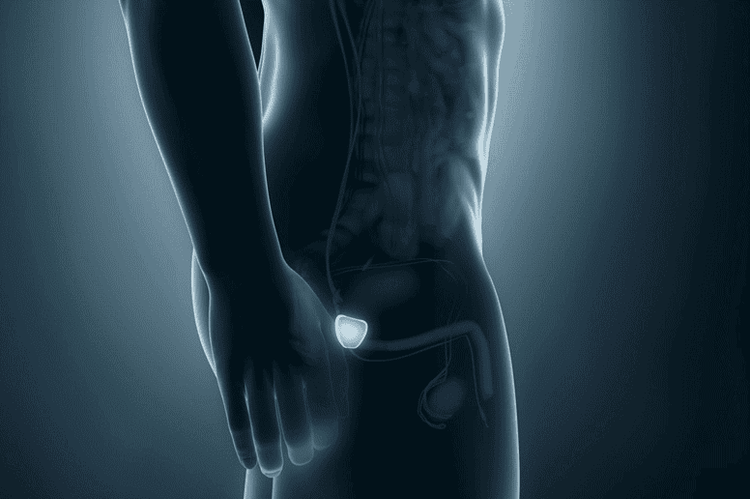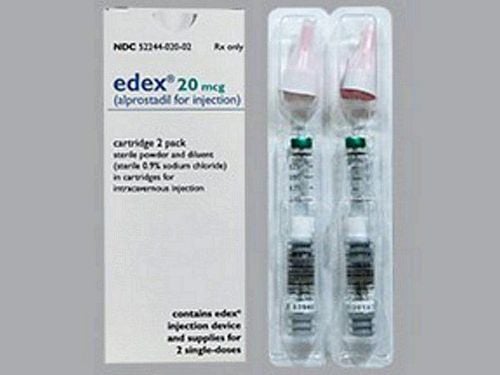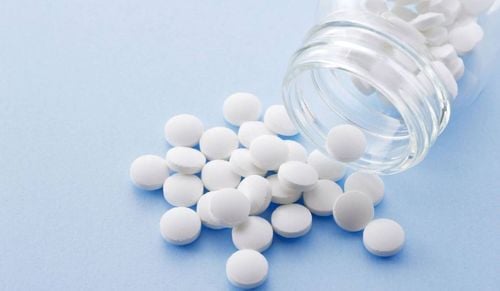This is an automatically translated article.
Cancer treatment can cause physical and emotional changes, including your sex life, such as changes in your preferences for sex and your ability to have sex. Sexual side effects can be physical, mental, or emotional. So how does cancer affect sex and can men with cancer have sex?
1.How can cancer surgery affect erections? Certain types of cancer surgery can affect erections. If any of these surgeries are part of your treatment plan, talk to your doctor before having the procedure. Ask your doctor how your erection might be affected by surgery and this may be the best way to manage the problem.
Radical prostatectomy: Removal of the prostate gland and seminal vesicles for prostate cancer Cystectomy: Removal of the bladder, prostate, upper urethra, and seminal vesicles for bladder cancer optical. A cystectomy requires a new method of collecting urine, either through an opening into a bag placed on the abdomen or by building a new "bladder" inside the body. Abdominoperineal (AP) resection: Removal of the lower colon and rectum for colon cancer. This surgery may require opening a hole in the abdominal wall to allow possible discharge from the body. Total mesenteric resection (TME): Removal of the rectum as well as the tissues that support it (called the mesentery) to treat rectal cancer. Total pelvic surgery: Removal of the bladder, prostate, seminal vesicles, and rectum, usually done for large tumors of the colon, requires a new opening for both urine and waste snake out of the body. Most men who undergo these types of surgery will experience some difficulty getting an erection (called erectile dysfunction or ED). Some men will be able to get an erection strong enough for sex, but may not be as firm as before. Others may not have an erection anymore. There are different ED treatments that can help many men regain their erections, so men shouldn't be too concerned about having sex with cancer.

Một số phẫu thuật ung thư có thể ảnh hưởng đến khả năng cương cứng của dương vật
2. Nerve damage from surgery The most common way surgery affects an erection is to remove or injure the nerves that help cause an erection. All of the surgeries listed above can damage these nerves. Nerves surround the back and sides of the prostate gland between the prostate and the rectum, and form a spider web around the prostate, making them vulnerable during surgery.
If possible, the doctor will perform the "nerve-sparing" methods used in radical prostatectomy, radical cystectomy, AP or TME resection. During neurectomy, doctors carefully try to avoid these nerves. When the size and location of the tumor allows nerve-sparing surgery, more men recover erections than with other techniques. But even if the surgeon is able to release these nerves, they can still be injured during surgery and need time to heal.
Even if the nerves are removed, research has shown that the healing process takes up to 2 years for most men. Doctors also don't know all the reasons why some men get a full erection and others don't. We know that men are more likely to recover an erection when the nerves on both the left and right sides of the prostate are preserved.
3. Other Factors Affecting Erection After Surgery A wide range of rates of ED have been reported, even in men without surgery. But for the most part, the younger a man is, the more likely he is to regain a full erection after surgery. Men under 60, and especially those under 50, are more likely to recover an erection than older men.
Erection strength before surgery: Men who had good erections before cancer surgery were more likely to recover their erections than men who had erection problems.
Other conditions, such as Peyronie's disease: In some men, the penis can develop into a curve or "knot" that causes pain when they get an erection. This condition is called Peyronie's disease. It is usually caused by scar tissue that forms inside the penis and is associated with certain cancer surgeries, such as a prostatectomy. However, Peyronie's disease is rarely associated with cancer treatment, and it can be treated with injections of certain drugs or surgery.
4. Early Penis Recovery After Surgery As mentioned above, recovery time after surgery can be up to 2 years. If a man doesn't get an erection during this time, the tissues in his penis can weaken. Once this happens, he will not be able to get an erection naturally. Some experts and doctors recommend different methods to promote erections starting within weeks or months after surgery to help some men recover sexual function. This is called penile rehabilitation, or erectile dysfunction.

Một số trường hợp, người bệnh được khuyến nghị với các phương pháp phục
Ensure regular erection and hard enough for sex, it is best to get erection 2 to 3 times a week. This will help keep the tissues in your penis healthy. Use a low dose oral tablet to help blood circulate around the nerve and help the nerve heal. Medicines that help create erections include: pills such as sildenafil (Viagra®), tadalafil (Cialis®) or vardenafil (Levitra®) - often used in combination with other therapies or devices. Since these drugs may not produce an erection, but they help keep the nerves responsible for an erection healthy, you can also use an injection into the penis or a suction device. vacuum.
5. How can cancer affect ejaculation? Cancer treatment can interfere with ejaculation by damaging the nerves that control the prostate, seminal vesicles, and bladder openings. Cancer can also prevent semen from being made in the prostate and seminal vesicles, or it can cut off the way that semen normally leaves the body. Even so, men can still feel the pleasure that causes orgasm. The difference is that at the time of orgasm, there is little or no semen ejaculated. This is called a "dry orgasm".
Over time, many men adapt to orgasm without semen. Some say that the orgasm is not as strong, while others say that the orgasm is stronger and feels more pleasant. Men may worry that their partner may notice a change because there is no actual discharge during sex when it comes to cancer.
Some men are concerned that their orgasms are less satisfying than before. Others feel uncomfortable with dry orgasms because they want to have children. If men know this before cancer treatment, doctors can store (save and preserve) sperm for future use.
Slight decrease in orgasm intensity is normal with aging, but can be more severe in men who have had cancer treatments that interfere with ejaculation.
6. Surgery Affects Ejaculation Surgery can affect ejaculation in different ways. For example, if the prostate gland and seminal vesicles are surgically removed, men can no longer produce semen. Surgery can also damage the nerves that come from the spine and control emission (when sperm and fluid combine to make semen). Note that these are not the bundles of nerves that travel next to the prostate and control an erection.
7. Dry orgasms After a radical prostatectomy or cystectomy (cystectomy), men will no longer produce semen because the prostate gland and seminal vesicles have been removed. The testicles still make sperm cells, but then the body simply reabsorbs them. This is not harmful. After cancer surgery, men will have dry orgasms.

Sau khi cắt bỏ tuyến tiền liệt triệt để nam giới sẽ có cực khoái khô
Transurethral resection of the prostate (TURP) is a good example of a surgery that often causes retrograde ejaculation because it damages the bladder valve. This surgery removes the prostate gland by passing a special scope through the urethra.
8. Nerve damage Cancer surgeries can cause dry orgasms by damaging the nerves that control emission (the process of mixing sperm and fluid to make semen) includes:
abdominoperineal (AP) resection, removal of the rectum and lower colon. total mesenteric resection (TME), which removes the rectum as well as the mesentery to treat rectal cancer Retroperitoneal lymph node dissection (RPLND), which removes lymph nodes in the back of the abdomen, usually in men with testicular cancer Some of the nerves that control emission run near the lower colon and are damaged by resection of the AP or TME. Lymph node dissection can damage the higher nerves, where they surround the aorta (the large main artery in the abdomen).
The effects of these types of surgery are probably very similar, but experts know more about a person's sexual function after RPLND. Sometimes this surgery just causes retrograde ejaculation, but it usually stops the emission. When this happens, the prostate gland and seminal vesicles cannot contract to mix semen with spermatogenic cells. In both cases, the result is a dry orgasm. The distinction between total non-ejaculation and retrograde ejaculation is important for men who want to be fathers. Retrograde ejaculation is better for soon-to-be fathers because sperm cells can be taken from the patient's urine and cleaned in a lab for use in artificial insemination.
Sometimes nerves that control emission recover from damage caused by RPLND. Because men with testicular cancer are often young and have not given birth, surgeons who use nerve-sparing methods often allow normal ejaculation after RPLND.
Some drugs can also restore the ejaculatory process of semen just long enough to collect sperm for conception.
If sperm cells cannot be recovered from a man's semen or urine, specialists can take them directly from the testicles by minor surgery, and then use them to fertilize the woman's egg. female to get pregnant.
RPLND does not prevent a man's erection or ability to orgasm. But it could mean that his orgasmic pleasure will be less intense.
9. Urine Leakage During Ejaculation Climacturia is the term used to describe the leakage of urine during orgasm. This is quite common after prostate surgery, but it may even go unnoticed. Urine output varies widely, from a few drops to more than an ounce. This condition may be more common in men with stress incontinence. Men with stress incontinence leak urine when they cough, laugh, sneeze, or exercise. This is because the muscles that control the flow of urine are weakened.
Urine is not dangerous for sexual partners, although it can be annoying during sex. Leakage tends to get better with time and using condoms and bands can help (Constriction bands are tightened at the base of the penis causing an erection and squeezing the urethra to retain water. urine does not leak out.)

Một số trường hợp bị rò rỉ nước tiểu khi xuất tinh
10. Other cancer treatment effects on ejaculation Some cancer treatments decrease the production of semen quantity. After radiation therapy to the prostate, some men ejaculate less semen. Towards the end of radiation therapy, men often experience pain during ejaculation. The pain is caused by irritation of the urethra (the tube that carries urine and semen through the penis). This symptom should disappear over time after treatment ends.
In most cases, men taking hormone therapy to treat prostate cancer also produce less semen than before.
Chemotherapy and other drugs used to treat cancer very rarely affect ejaculation. But there are certain drugs that can cause retrograde ejaculation by damaging the nerves that control emission.
Early cancer screening is considered a perfect measure in the timely detection and treatment of all types of cancer. Vinmec International General Hospital currently has a high-tech cancer screening and examination package, including genetic testing, imaging, and biomarkers for early tumor detection. A single gene test can assess the risk of 16 common cancers in both men and women (lung cancer, colorectal cancer, breast cancer, pancreatic cancer, cervical cancer) Bowel cancer , stomach cancer , prostate cancer ,....)
Please dial HOTLINE for more information or register for an appointment HERE. Download MyVinmec app to make appointments faster and to manage your bookings easily.
References: cancer.org
MORE:
Radiation therapy for prostate cancer Sexual health and cancer treatment in men Sexual health and cancer: What to know, what to do do













